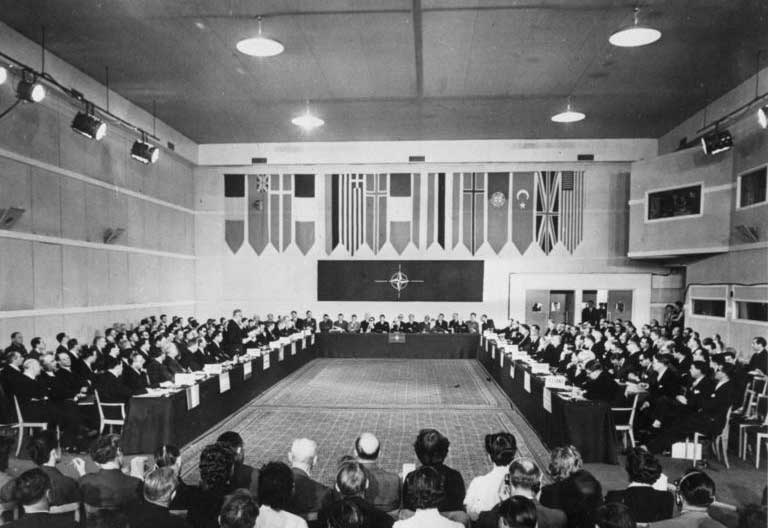1966 Fance Withdraws From NATO Military Command
On March 7,1966 French President Charles de Gaulle announced France's withdrawal from NATO's integrated military command, resulting in the relocation of NATO headquarters from Paris to Brussels..
France, under the leadership of President Charles de Gaulle, had been a founding member of NATO. However, de Gaulle's vision of France's role in the world and his aspirations for national sovereignty would eventually lead to a significant shift in France's relationship with the alliance.
Rationale for Withdrawal
Several factors contributed to de Gaulle's decision to withdraw France from NATO's integrated military command in 1966. Key reasons included:
-
Asserting French independence: De Gaulle sought to reassert France's global stature and independence after the humiliations of World War II. He believed that NATO undermined French sovereignty and limited France's ability to pursue an independent foreign policy. De Gaulle was particularly concerned about the dominance of the United States and the United Kingdom within NATO, which he felt marginalized other member states.
-
Nuclear deterrence: De Gaulle was determined to develop France's nuclear capability, viewing it as essential for national defense and a means to assert France's status as a major power. In 1960, France successfully tested its first atomic bomb, and by the mid-1960s, it had developed a nuclear triad comprising land-based missiles, submarine-launched ballistic missiles, and air-launched weapons. De Gaulle believed that an independent French nuclear deterrent was necessary to complement NATO's defense capabilities.
-
Pursuing a policy of détente: De Gaulle sought to improve relations between East and West, advocating for greater dialogue and cooperation with the Soviet Union. He believed that NATO's aggressive posture and focus on containment limited the potential for détente between the superpowers, thereby increasing the risk of conflict.
The French withdrawal from NATO's integrated military command had several significant implications:
-
Strained relations with NATO allies: France's decision to withdraw from the military command created tensions within the alliance, particularly with the United States and the United Kingdom. The withdrawal was seen as a challenge to NATO's cohesion and unity, prompting concerns about the alliance's ability to effectively deter Soviet aggression.
-
Relocation of NATO headquarters: As a consequence of France's withdrawal, NATO's headquarters were relocated from Paris to Brussels, Belgium, in 1967. This move further symbolized the rift between France and the alliance.
-
Development of an independent French defense strategy: Following the withdrawal, France pursued a defense strategy that prioritized its nuclear deterrent and the development of its conventional armed forces. The French military maintained a degree of cooperation with NATO, but France's defense posture was increasingly independent of the alliance.
-
France's role in European security: Despite its withdrawal from NATO's military command, France continued to play a significant role in European security through its participation in other regional organizations, such as the European Economic Community (EEC) and the Western European Union (WEU).
 >
>